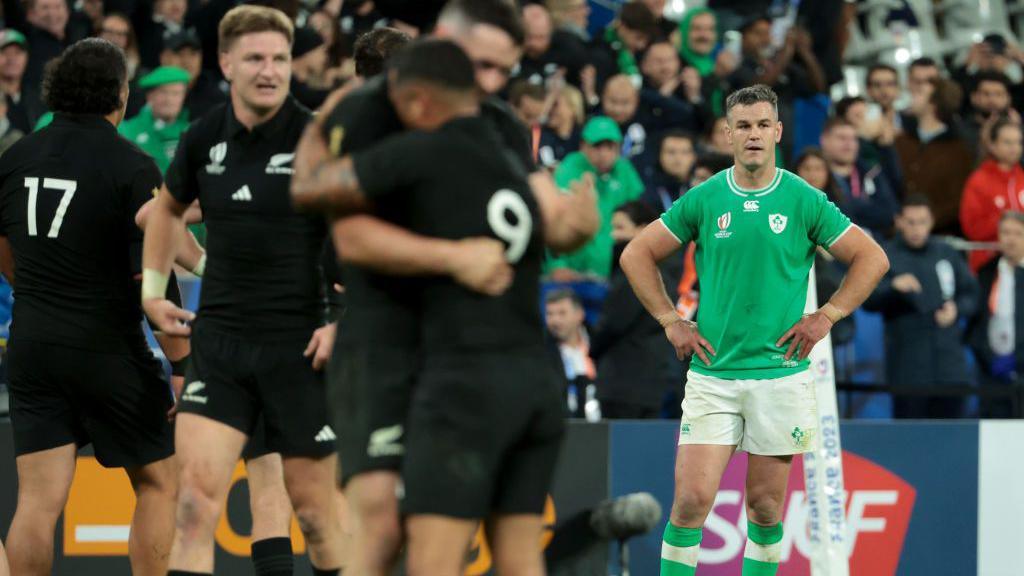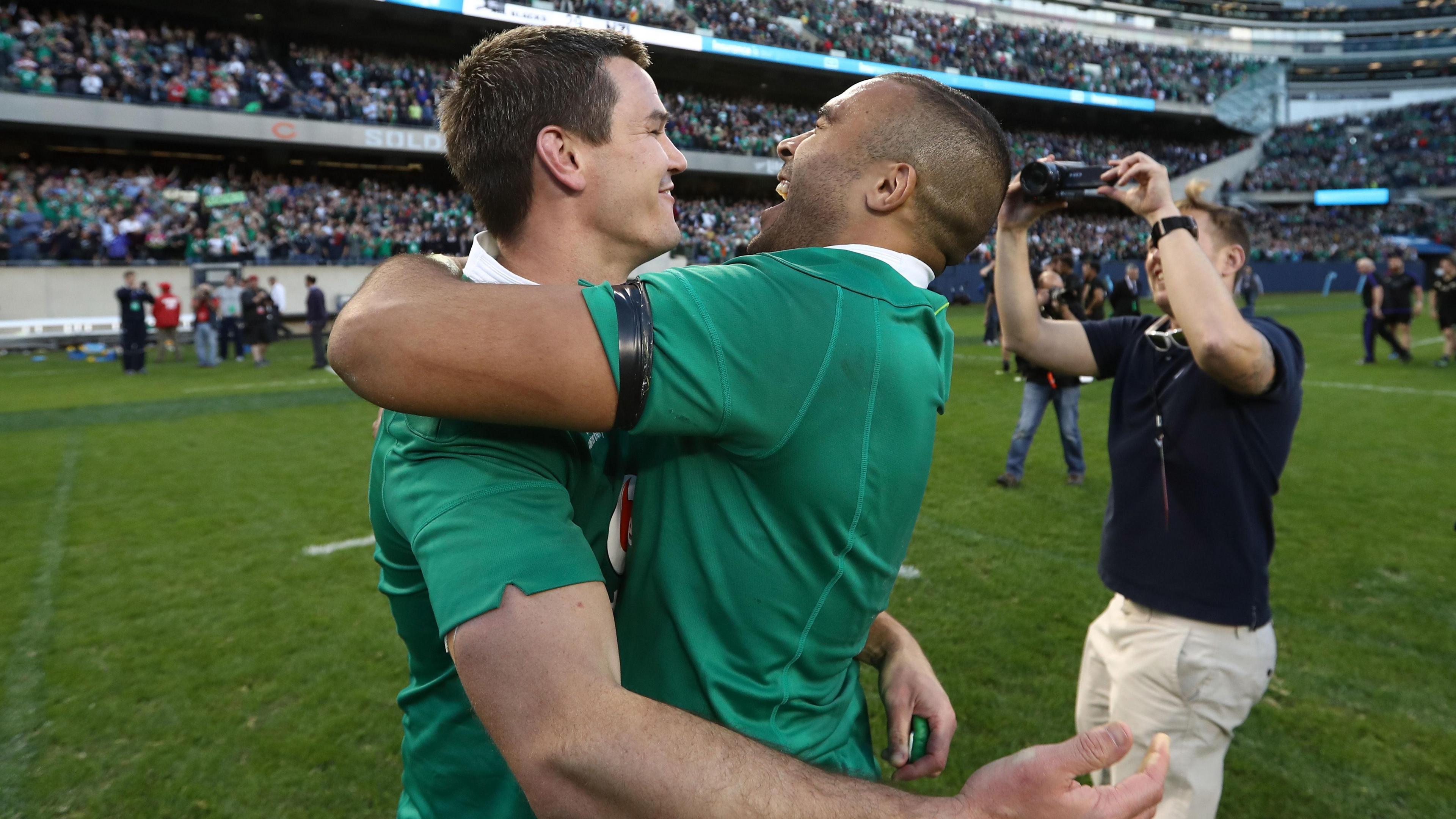Eye-opening lessons, special encounters - Sexton on All Blacks

The last game of Johnny Sexton's career came in a World Cup quarter-final defeat to the All Blacks last year
- Published
Autumn Nations Series: Ireland v New Zealand
Venue: Aviva Stadium, Dublin Date: Friday, 8 November Kick-off: 20:10 GMT
Coverage: Listen to live commentary on BBC Radio Ulster and BBC Sounds, and follow live text commentary on the BBC Sport website and app.
"They reflect my career in a lot of ways, they've given me some great moments."
From coming on for the last 10 minutes of a 66-28 defeat in New Plymouth, to a gut-wrenching World Cup quarter-final defeat in his last game as a professional, Johnny Sexton's experience against the All Blacks started and finished on particularly sour notes.
In between, however, were some of his most cherished experiences on a rugby pitch.
Sexton was the key creative cog in Joe Schmidt's side that ended Ireland's 111-year wait for victory over New Zealand, a 2016 win made all the sweeter by the fact he felt his missed penalty in 2013 had contributed to a galling last-gasp defeat when history appeared to be on the cards.
Sexton was still in the 10 jersey two years later when Ireland toasted a first home victory over the game's most famous side, and he was captain in 2022 when, under the stewardship of Andy Farrell, they won a first Test series away to New Zealand.
From the start to finish of his distinguished international career, Sexton saw the rugby relationship between the two nations change utterly. Indeed, before Friday's meeting in Dublin, the past 10 encounters have been evenly split at five wins apiece.
"I played in New Zealand a lot of times, especially when you consider how few times I played in South Africa, or went to South Africa, never when I was playing rugby," Ireland's record points scorer told BBC Sport NI.
"The amount of times I played in New Zealand was huge. They reflect my story in many ways, in terms of how the early days playing against them were real eye-opening lessons - how good they were, the intensity they played at, how fit they were and the lessons that I took from that.
"Being able to come full circle, to be lucky enough to be part of a team that beat them on a few occasions with Ireland and the [British and Irish] Lions, that was very special.
"There's been special encounters and facing the haka has been up there with some of my favourite memories playing international rugby."
Sexton 'might have been tempted' by Leinster stay
- Published8 October 2024
Sexton has brought 'real positivity' into coaching role
- Published1 November 2024
That first victory in Chicago's Soldier Field, coming against an All Blacks side who had won the past two World Cups, will always hold a special place in Irish rugby history.
For Sexton, the memories feel all the more poignant for how the side faced the haka in a figure of eight in the weeks after the death of former Irish back-rower Anthony Foley.
"They were a team that didn't lose too often. They say themselves, they're the only team in sport with a 90% win ratio," Sexton said.
"Any time you beat them around then, it was very special.
"Lining up in the figure of eight in Chicago so soon after Anthony Foley's death, that was a moment-in-time kind of situation. We knew we had to step up."

Johnny Sexton celebrates with Simon Zebo after Ireland beat New Zealand for the first time in 2016
Sexton's view of the rivalry will be from a different vantage point this time around. While he has started each of Ireland's past 14 games against the All Blacks, his retirement after last year's World Cup saw Jack Crowley promoted to the 10 jersey.
The 39-year-old Sexton has been in and out of camp in an unofficial advisory capacity, although he already made headlines earlier this month when his recent autobiography revisited his spat with All Blacks' centre Rieko Ioane after the final whistle of the World Cup quarter-final in Paris.
Theoretically free from the current players' reticence to fan the flames in the build-up to any big Test, even in retirement Sexton thought long and hard about whether to include the extract which is sure to be revisited this week.
"I don't want to create problems for the Irish team," he said.
"I don't want to make the game bigger or hype it up in any way. It's got nothing to do with me any more."
In terms of opening up on the exchange, Sexton simply wanted to explain why he reacted in the way he did after television cameras picked up on his angry reaction after the final whistle.
"Like I said, it's just me explaining [his side of the story], like I do throughout the whole book," he said.
"At times where people would have perceived me to be a certain way, I just try and explain why I was like that. I'm not saying it's right or wrong, it's just this is why it happened, this is why I reacted in the way that I did, and that's it.
"I'm not giving out about it, I'm not saying anything about him as a person, I'm saying this is what happened and let's move on."